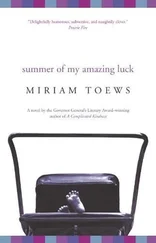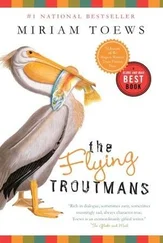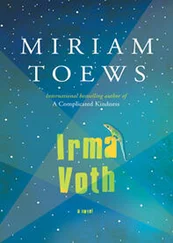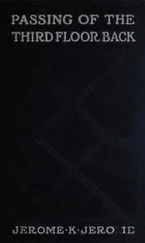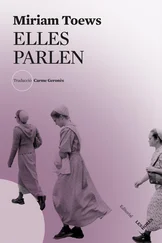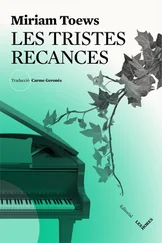A tall girl, about twelve, and a short boy, about ten, walked up to me and asked me if I’d wrecked the sign.
I did, yeah, I said.
Why? they asked. The girl put her elbow on the boy’s head. I shrugged.
Will you get in trouble? asked the boy.
I doubt it, I said. I asked them where they were going. The girl said to buy a box of chocolates. For him, she said, pointing at the boy. For being my faithful armrest all year. The boy smiled from under the girl’s elbow.
That’s handy, I said.
I know, said the girl. I get so tired of standing.
They promised they wouldn’t tell anybody that I had wrecked the sign and I thanked them and watched as they too walked towards our man from Nazareth.
I missed Lids. Aimless isn’t quite so aimless when you’re doing nothing with a friend. I walked through a little park next to the Rest Haven and noticed a pup tent set up under a tree. I went up to it and said hello and a woman poked her head out of the flap. Oh sorry, I said. I was just curious about the tent. We’re waiting for a home, she said. Oh, okay, I said. Sorry. Yesterday we found a twenty-dollar bill and we used it to buy food and soap. Right on, I said. We know we’ll be provided for, she said. I smiled and nodded. Where are you from? Paraguay, said the woman. The Gran Chaco. Wow, I said. Do you know Doft? I asked. We know we’ll be provided for, said the woman, again. I nodded. Well, have fun, I said. She thanked me and closed the flap.
I walked on to the hospital, taking Reimer Avenue past the Kids Korner where I used to work at trying to stay awake, and then the morgue tunnel. I took the elevator up to the main floor and went to Lids’s room. Her parents were there and so was Dr. Hunter and a nurse.
Lids was lying in her bed looking scared and helpless and her face was glowing, almost flickering.
Oh, Naomi, said Lids’s mom. We’re having a bit of a discussion here. Would it be possible for you to come back another time?
Sure, yeah, I said.
Lids and I exchanged one very brief look and no smiles. I went into the hallway and asked the nurse, the nice one behind the desk, what was going on. She shook her head and said she didn’t know. Some type of conference, maybe. Possibly related to Lids’s having been stranded that afternoon.
What do you mean, stranded? I asked. The nurse told me that Lids had suddenly decided to get up and go for a walk but had only made it to the corner of Barkman and Lumber before collapsing on the sidewalk. Somebody saw her from their kitchen window and called the cop and he went over there to help her but she wouldn’t let him touch her because it hurt too much. Then her parents came and so did Dr. Hunter but she wouldn’t let anybody touch her. She just lay there on the sidewalk, moaning.
Then how did she get back here? I asked the nurse. Her parents finally just picked her up and put her in the back seat of the car, she said.
Is she feeling better now? I asked the nurse. Well, yes, in a way, said the nurse. We’ve given her a sedative and some toast.
Lids had been wrestled into the back seat of a car. Her parents had wanted to take her home but Lids had insisted on coming back to the hospital, said the nurse.
That’s because at home they treat her with prayer and tomato juice, I told her.
Well, said the nurse, it’s really not that much different here. We don’t know what to do, to be perfectly honest.
I know that feeling, I said.
The nurse gave me a finger of her Kit Kat bar and told me she’d tell Lids that I’d be back soon.
I walked out of the town, past the parka factory, towards the lagoon. I’d never been there before. I had to climb a chain-link fence to get inside. There were four Olympic-sized pools containing the town’s raw waste. It didn’t look bad. It didn’t smell bad either. If you could get past the idea of it, it was kind of pretty. The sun was in a position that made everything soft orange, like the inside of a cantaloupe. This is where it all began, I thought. Were it not for this strangely beautiful cesspool of unfiltered crap I would not be here. I just sat for a while. It occurred to me that Tash may have been bullshitting me when she said this was the place where Dad had asked Mom to marry him. Nobody else came. I tried psychically to prevent seagulls from landing in the pools. Eventually I got up and climbed back over the chain-link fence.
I stood in the lobby of the bank with my face against the cool granite, soaking up the air conditioning. Someone opened the door and I heard a familiar voice in the distance. Cast a cold eye on life, on death. Horseman, pass by. Only my dad would quote the words on Yeats’s grave to a fundamentalist bank teller in a floral print dress. I didn’t know the context. I saw her nodding and smiling and my dad standing solemnly on the other side of the counter like he was waiting for directions to the body. That’s right, I heard him say. I’m fond of certain carbons. I couldn’t hear what the teller was saying. She must have been a former student of his. Yes, he said morosely, I recall…the type of carbon where atoms are joined in a hollow structure…oh yes. He looked up and I waved.
We walked home together. He told me that for a second he’d smelled horse manure while standing in a parking lot that afternoon and he had thought of me. Yeah? I asked him. Yes, he said, only in the sense that you used to ride horses. Neither of us had much to say after that. When we got home there was a man there fixing the corner of the garage roof that had collapsed.
Well, asked my dad, is it doable? The man rattled off something in the language of our isolated people and my dad said something back to him, in kind. He shifted back to English and began to call out encouraging words to the man. He offered to bring him a glass of water. I went inside and watched my dad watch the man. I wanted to tell him not to, because it was embarrassing. I mean, why would you watch a man fix your roof.
Tash had a summer job at thirteen, babysitting Trudie’s mother so Grandma wouldn’t get wasted on vanilla, burn down her apartment, get kicked out and have to live with us.
Tash told me it was The Mouth’s fault that his mother drank. And regret, she said. For the way things could have been. I had the feeling she was quoting somebody, or would one day become a rock poetess, a term I’d recently seen on a scrap of city newspaper that the wind had carried to our town. For the way things could have been. We would sit in the crabapple tree outside Grandma’s and watch her door to make sure she didn’t take off on one of her wobbly odysseys to the Economy Foods baking goods aisle.
It was pretty good money for Tash and she gave me a dime for The Trampoline House every once in a while when I kept her company. One time we were sitting in the tree and she told me she had this thing about sneezing. That whenever she lay down in her bed to think about boys she’d immediately sneeze twice. After a while she got really nervous about it because she was convinced our parents would know what the sneezes meant. Heavy, I said. I just sneeze when I stand in the sun. She told me that’s cause I was ten. Three years from then my sneezes would become a manifestation of different types of feelings of warmth and happiness.
Other things happened in that tree. She showed me how to hyperventilate. She showed me how to kill a person by punching their nose bone into their brain. We threw crabapples at cars. And she got her first period. We were wearing new bathing suits. Wow, lucky duck, I’d said because she looked so sad and she’d said yeah, merry Christmas to you too.
Travis taught me how to walk today. I have to roll and bob more, use my whole body. It’s kind of a druggy walk. Travis prefers to call it insouciant. Then we promenaded over to the RK Ranch which is just past one of the dirt fields at the end of Main Street and stared at these giant horses with hairy ankles and eyes the size of nectarines. They were the horses that pulled tourists around the fake village in wagons.
Читать дальше

